Do Guests Pay for Weddings? A Friendly Guide to Wedding Etiquette
Weddings are a beautiful celebration of love and commitment, but they can also bring up questions about who’s responsible for paying for what. Guests do not pay for the wedding itself, but they often show their support through gifts or by covering their travel and accommodation costs. As you navigate wedding etiquette, it helps to know how these traditions have evolved over time and how they can inform modern practices.
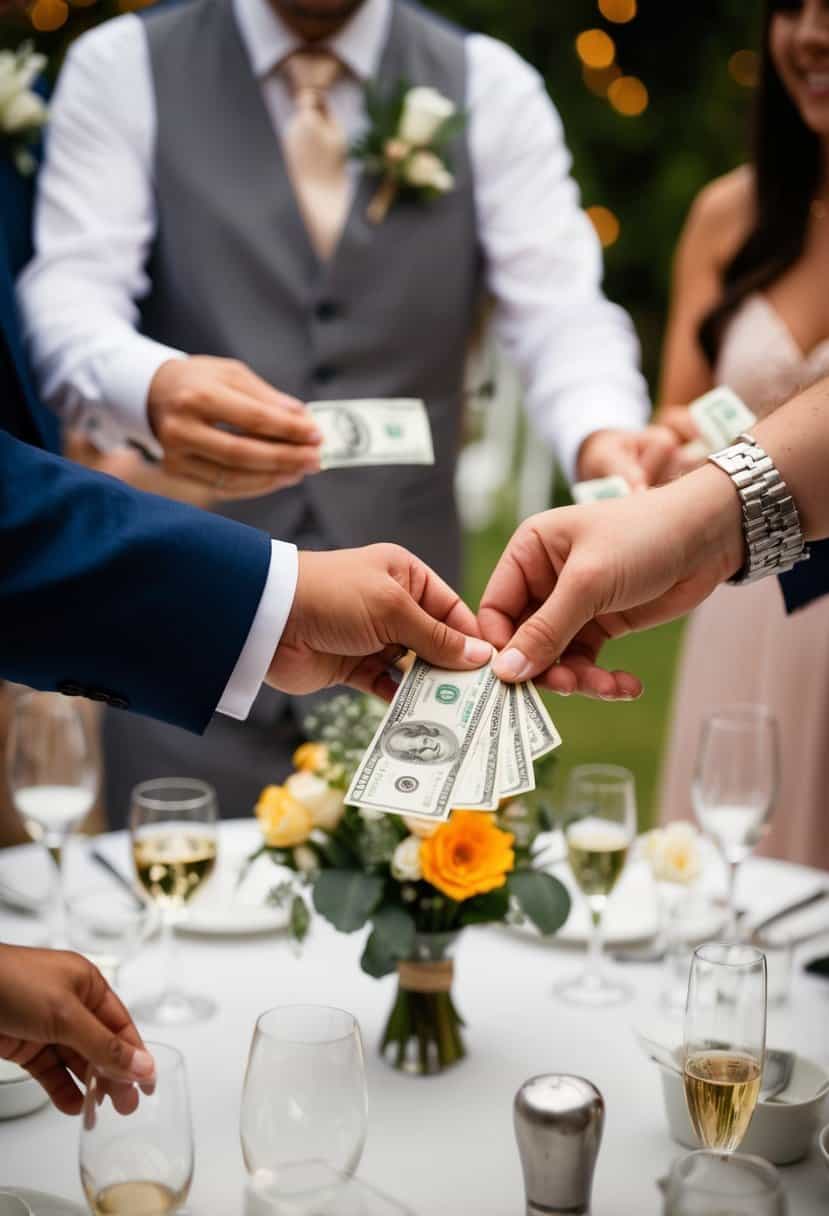
Weddings can have many expenses, and families and the couple usually share these costs. Understanding financial responsibilities in wedding planning can make the process smoother for everyone involved.
For instance, parents typically cover a significant portion of the wedding budget, but more couples today contribute as well. Guests, while not expected to cover event costs, often factor in the cost of gifts, attire, and travel when attending.
With the roles and expectations surrounding weddings continuously evolving, knowing the norms can help prevent any potential awkwardness. Whether you’re a soon-to-be-married couple or a wedding guest, getting a grasp on who pays for what can improve your wedding experience.
Understanding Wedding Expenses

When planning a wedding, it’s important to know the different expenses you might encounter. From deciding on a wedding budget to understanding who pays for each part, every detail can impact your plans. This section breaks down essential wedding costs and how to allocate them.
Allocating Budget Sections
You start by listing your priorities. Determining what matters most helps in setting aside funds. Consider the wedding venue, attire, and vendors.
Make a detailed list of all possible expenses. Group them into categories that make sense, such as food, decorations, and entertainment. By having a clear outline, it becomes easier to manage each section of your wedding budget.
Ensure you stay on track by reviewing your budget regularly. Adjustments might be needed if expenses change.
Common Costs for Hosts
Wedding hosts often cover essential elements. Typically, the venue and reception costs form the largest chunk of expenses. Items like decorations, catering, and music need consideration.
Invitations and other stationery, such as thank-you notes, also add to the costs. Planning for attire, including dresses and suits for the wedding party, is necessary as well.
Transportation can be another significant expense, whether it’s for the couple or guests. Hosting a wedding requires understanding these common costs to ensure everything runs smoothly.
Financial Responsibility Breakdown
Traditionally, different families took on specific costs. The bride’s family might cover most wedding-related expenses. This could include the venue, ceremony, and reception costs.
The groom’s family might cover the rehearsal dinner and sometimes the officiant’s fee. However, modern couples often split costs differently, depending on personal circumstances.
Younger couples, like millennials, may handle a significant part of expenses. This involves planning and discussing financial responsibilities early on to avoid surprises later.
Etiquette for Guests and Hosts
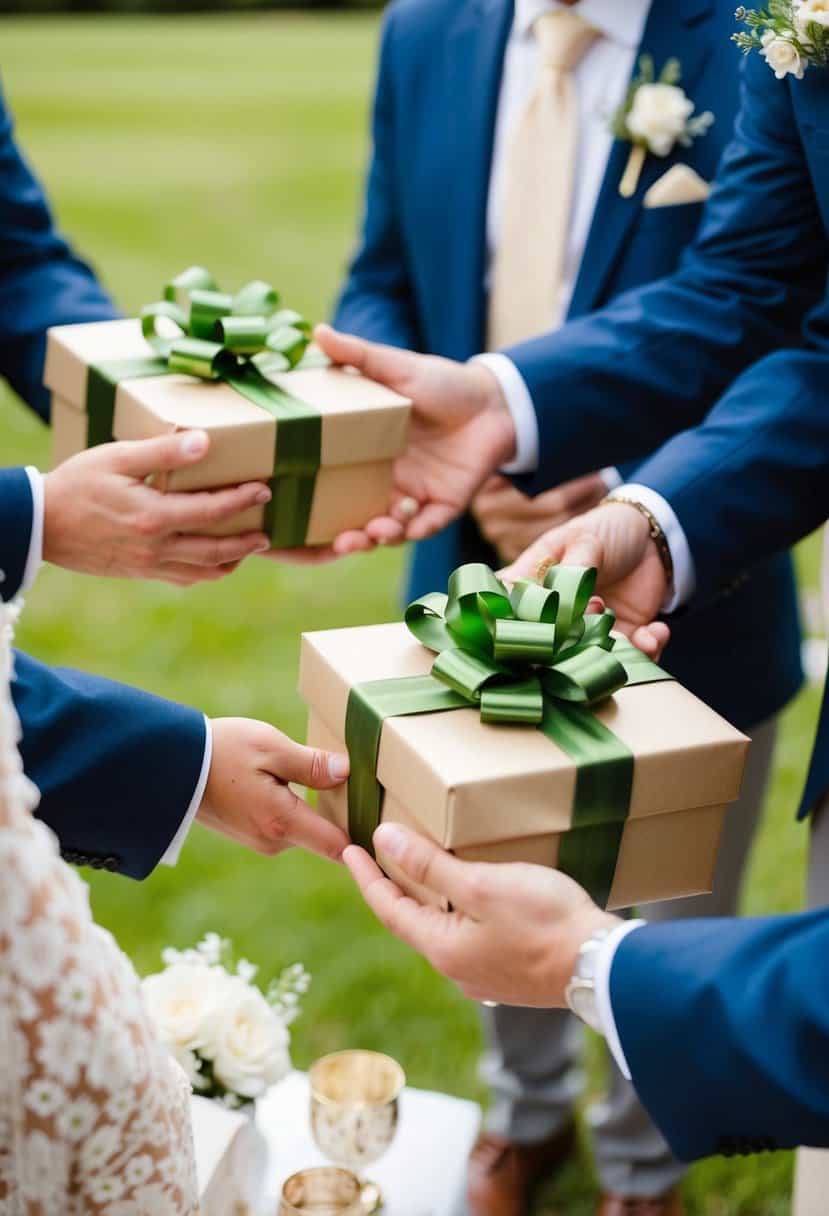
When attending a wedding, understanding etiquette is key for both guests and hosts. It involves knowing how to give a proper gift and handling travel arrangements appropriately. This helps ensure a smooth experience for everyone involved.
Gift-Giving Traditions
One of the key aspects of wedding etiquette is giving gifts. As a guest, it’s thoughtful to choose something from the couple’s wedding registry. This ensures you’re giving something they truly want or need.
Many guests also opt to give cash or a check, which can be helpful for couples starting their lives together. If you choose a non-registry gift, just make sure it suits the couple’s taste and lifestyle.
Bringing a gift to the wedding itself is common, or you might send it to their home before the big day. Remember, your presence is important, but an appropriate gift is a lovely gesture that expresses your support for the couple’s new journey.
Accommodations and Travel
Accommodations and travel can play a big role for guests attending a wedding, especially if it’s a destination event. Hosts often reserve a block of rooms at a hotel near the venue, sometimes with a discounted rate.
Be sure to book early to secure your spot within the reserved block.
While it’s generally the guest’s responsibility to cover travel and accommodations, some hosts might offer help or suggestions to make it convenient. Always confirm travel plans and RSVP timely to ensure everyone, including the hosts, can prepare adequately. It shows proper etiquette and respects the effort the couple puts into organizing their wedding.
Special Considerations for Destination Weddings
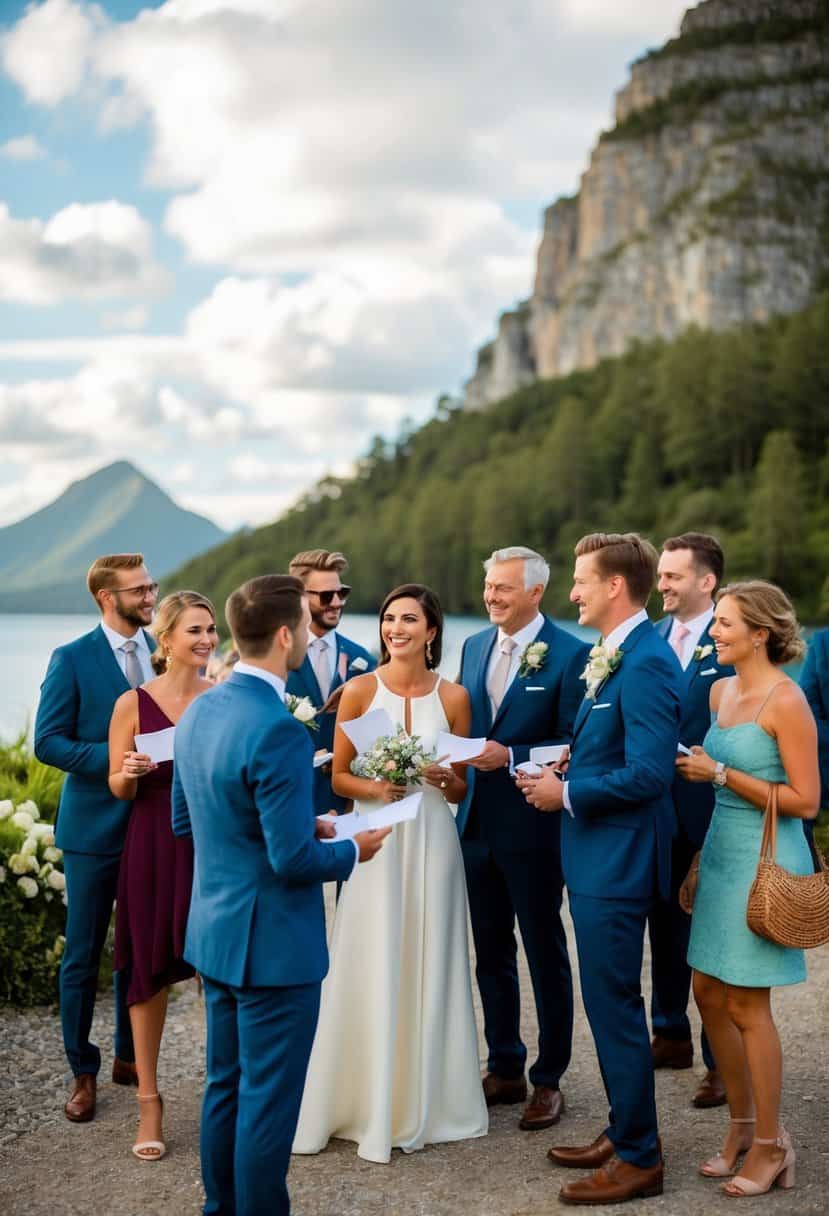
Destination weddings come with unique financial aspects involving travel, lodging, and group activities. Understanding who covers certain expenses and how to manage group rates can help make the event enjoyable and cost-effective for everyone involved.
Who Covers the Airfare
When it comes to flights, guests usually pay their own way for a destination wedding. The idea is similar to how they would manage costs if going on a vacation themselves.
Some couples might choose to help with these expenses, but it is not expected. Typically, the responsibility for airfare falls on the attendees unless otherwise discussed. This arrangement allows the couple to focus on other parts of the wedding.
Planning Group Activities
Group activities during a destination wedding can make the experience more memorable. It’s often a good idea for the couple to organize events like group dinners, sightseeing tours, or spa days.
This can create a sense of community and fun. When planning activities, consider the costs involved and decide who will cover them.
The couple may choose to cover certain events, or guests might pay their share. Providing a range of options caters to different budgets and preferences.
Hotel Accommodations and Group Rates
Lodging costs are a significant part of any destination wedding. Often, the couple arranges for a block of rooms at a favorable group rate with the hotel.
Guests are generally expected to pay for their accommodations, but securing these rates can make it more affordable. Couples might include these details in wedding invitations or websites. Additionally, sharing a list of nearby hotels with diverse price options can help guests make informed decisions that fit their budget.
Some wedding packages may also offer extra perks or discounts for large groups.
Pre-Wedding and Post-Wedding Events
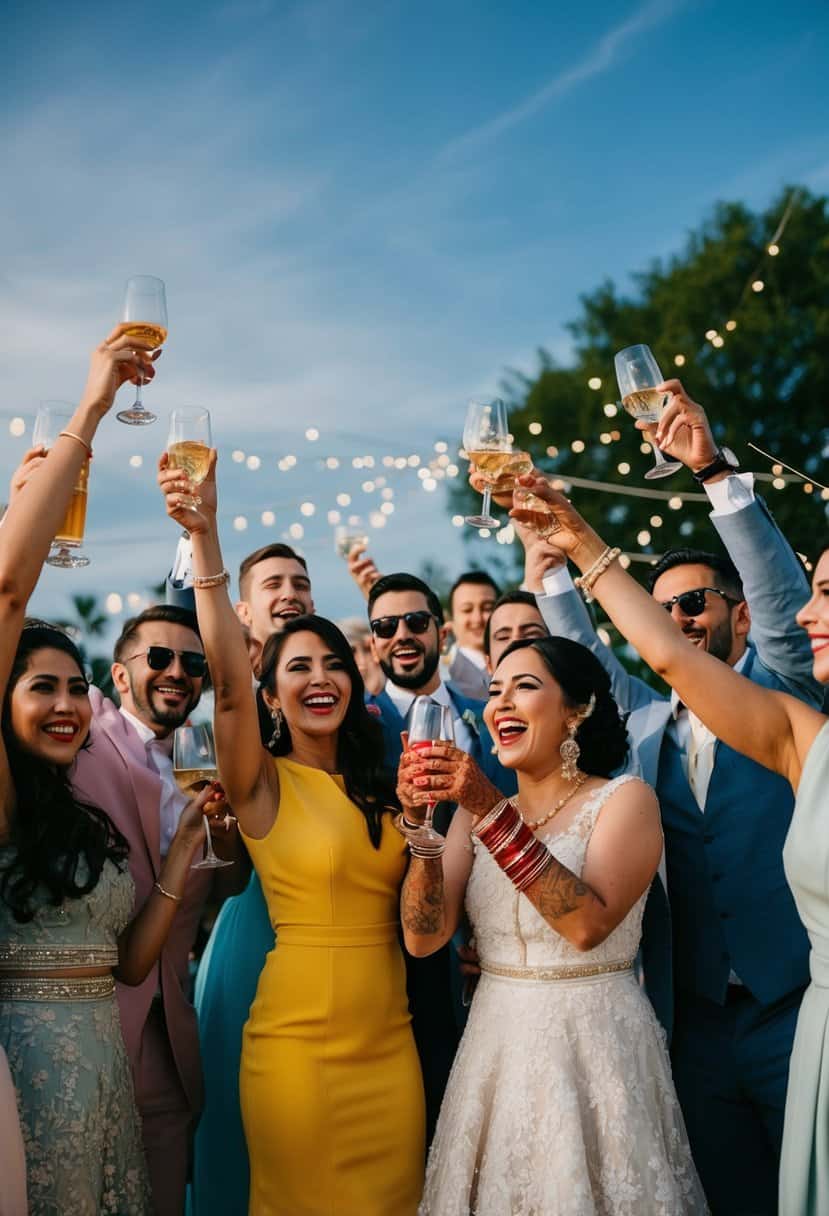
Attending a wedding involves more than just the main ceremony. There are several events before and after that add to the experience. You might be invited to a rehearsal dinner, enjoy a bridal shower, or close the celebrations with a brunch.
Rehearsal Dinner Details
The rehearsal dinner is often hosted the night before the wedding. It’s a chance for the couple, their families, and close friends to gather in a relaxed setting before the big day.
Traditionally, the groom’s parents host this event. However, modern couples often take on this role themselves.
At the dinner, there may be speeches, toasts, and even a little entertainment. It’s an excellent way for guests to break the ice and get to know each other better before the wedding. Sometimes a welcome party is part of the evening, inviting all out-of-town guests to join in.
Bridal Showers and Engagement Parties
Bridal showers and engagement parties are common pre-wedding events. A bridal shower is usually a more intimate gathering of close friends and family, celebrating the bride with games, gifts, and advice.
Traditionally, these are thrown by the bridesmaids, but anyone can host it.
An engagement party is typically larger and includes both the bride and groom. This event marks the start of the wedding journey and provides a platform for the couple to celebrate their upcoming nuptials with family and friends. You’ll likely receive a save the date card for these events well in advance.
The Day After: Brunch and Goodbyes
The morning-after brunch is a lovely way to wrap up the wedding celebration. This casual gathering allows you, the couple, and other guests to unwind, share favorite memories from the wedding, and enjoy some final moments together.
This event is usually hosted by the couple or their families. It provides a relaxed environment to say goodbyes and wish each other well. It’s not uncommon for the brunch to focus on the newlywed’s local cuisine or to be held in a venue that reflects something special about the couple.
The Wedding Day Itinerary
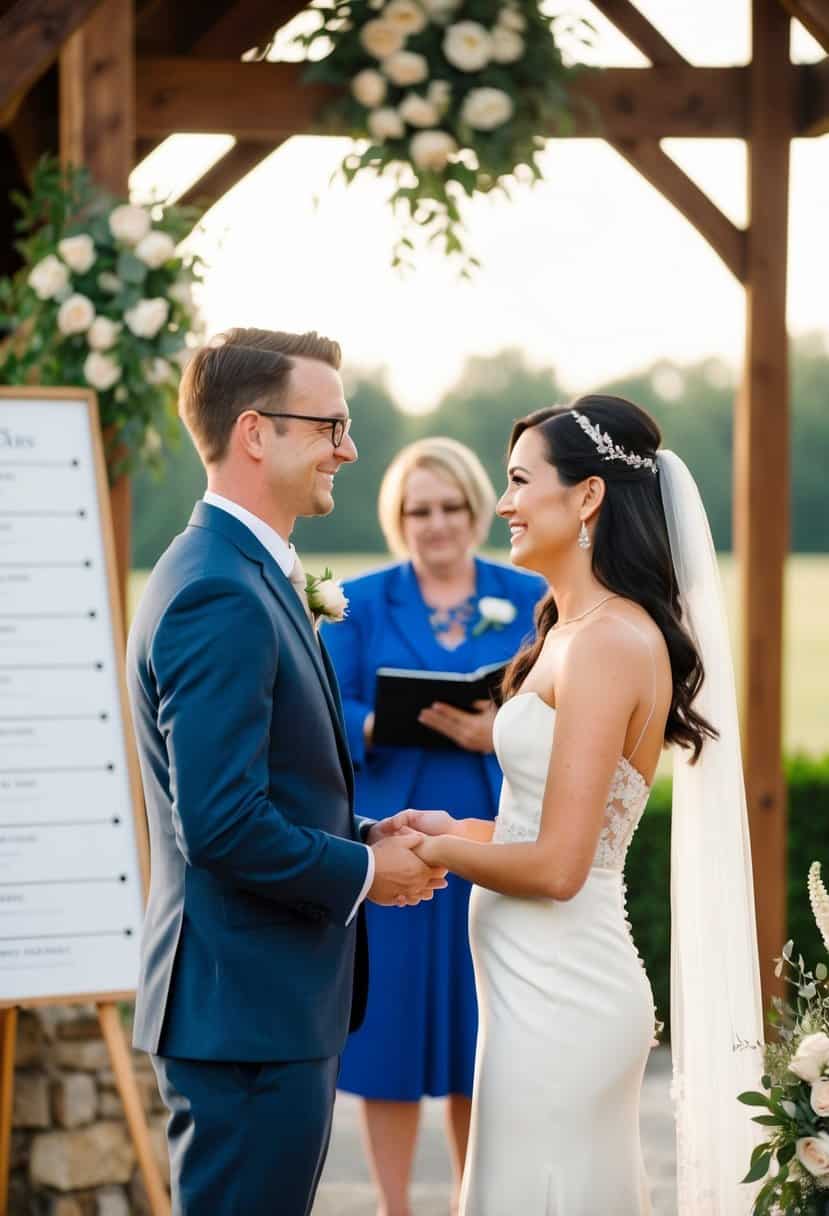
A well-structured wedding day itinerary can ensure that everything runs smoothly. Focus on planning key elements like the ceremony, reception, attire, and styling.
Ceremony and Reception
Planning the ceremony and reception is a major part of your wedding day. For the ceremony, consider logistics like the venue location, guest arrival, and schedule. Make sure the wedding party knows their roles and has transportation arranged.
Aim to start the ceremony on time to avoid any rush afterward.
For the reception, timing is crucial. Once your guests arrive, they’ll be eager for the festivities to begin. Meals should be served without delay to keep everyone happy. For ideas on timing, the reception meal typically starts about 30-45 minutes into the event, as advised by a wedding day timeline.
Looking Your Best: Attire and Styling
Your attire and styling are vital for feeling confident on your big day. Formalwear for the wedding can include a classic wedding dress, tuxedo, or other chosen styles. Make sure to organize fittings well in advance to prevent last-minute issues. Also, don’t forget about the wedding cake; make sure it’s ordered and scheduled for delivery.
Hair and makeup are important for looking your best. It’s usually best to start early on the wedding day so you have ample time to get ready without feeling rushed. For detailed timing, consider examples like those shown in this getting-ready timeline. Having a professional stylist can make this process smoother, ensuring you look your best as you walk down the aisle.




